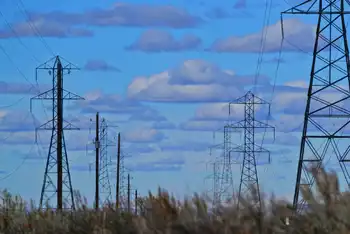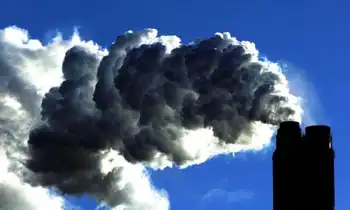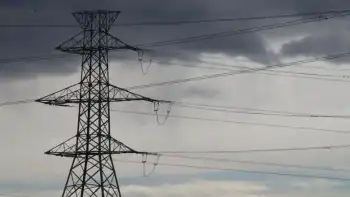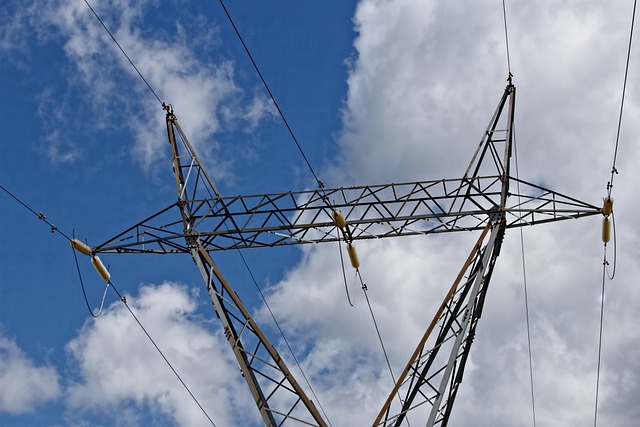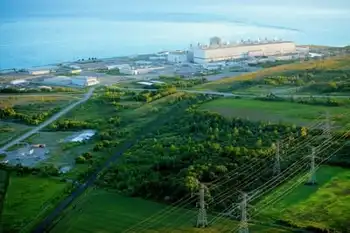TransAlta Scraps Wind Farm as Alberta's Energy Future Blusters
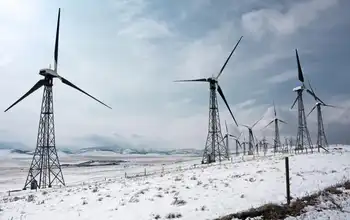
Substation Relay Protection Training
Our customized live online or in‑person group training can be delivered to your staff at your location.

- Live Online
- 12 hours Instructor-led
- Group Training Available
Alberta Wind Energy Policy Changes highlight TransAlta's Riplinger cancellation amid UCP buffer zones for pristine viewscapes, regulatory uncertainty, and market redesign debates, reshaping Alberta's renewables investment climate and clean energy diversification plans.
Key Points
UCP rules and market shifts reshaping wind siting, permits, and finance, increasing uncertainty and delays for new projects.
✅ 35-km buffer near pristine viewscapes limits wind siting
✅ TransAlta cancels 300 MW Riplinger project
✅ Market redesign uncertainty chills renewables investment
The winds of change are blowing through Alberta's energy landscape today, and they're not necessarily carrying good news for renewable energy development. TransAlta, a major Canadian energy company, recently announced the cancellation of a significant wind farm project, citing a confluence of factors that create uncertainty for the future of wind power in the province. This decision throws a spotlight on the ongoing debate between responsible development and fostering a clean energy future in Alberta.
The scrapped project, the Riplinger wind farm near Cardston, Alberta, was envisioned as a 300-megawatt facility capable of providing clean electricity to the province. However, TransAlta pointed to recent regulatory changes implemented by the United Conservative Party (UCP) government, following the end of the renewable energy moratorium in Alberta, as a key reason for the project's demise. These changes include the establishment of a 35-kilometer buffer zone around designated "pristine viewscapes," which significantly restricts potential wind farm locations.
John Kousinioris, CEO of TransAlta, expressed frustration with the lack of clarity surrounding the future of renewable energy policy in Alberta. He highlighted this, along with the aforementioned rule changes, as major factors in the project's cancellation. TransAlta has also placed three other power projects on hold, indicating a broader concern about the current investment climate for renewable energy in the province.
The news has been met with mixed reactions. While some residents living near the proposed wind farm site celebrate the decision due to concerns about potential impacts on tourism and the environment, others worry about the implications for Alberta's clean energy ambitions, including renewable energy job growth in the province. The province, a major energy producer in Canada, has traditionally relied heavily on fossil fuels, and this decision might be seen as a setback for its goals of diversifying its energy mix.
The Alberta government defends its changes to renewable energy policy, arguing that they are necessary to ensure responsible development and protect sensitive ecological areas. However, the TransAlta decision raises questions about the potential unintended consequences of these changes. Critics argue that the restrictions might discourage investment in renewable energy and the province's ability to sell clean power to wider markets altogether, hindering Alberta's progress towards a more sustainable future.
Adding to the uncertainty is the ongoing process of redesigning Alberta's energy market. The aim is to incorporate more renewable energy sources, including solar energy expansion across the grid, but the details of this redesign remain unclear. This lack of transparency makes it difficult for companies like TransAlta to make sound investment decisions, further dampening enthusiasm for renewable energy projects.
The future of wind energy development in Alberta remains to be seen. TransAlta's decision to scrap the Riplinger project is a significant development, and it will be interesting to observe how other companies respond to the changing regulatory landscape, as a Warren Buffett-linked developer pursues a $200 million wind project in Alberta. Striking a balance between responsible development, protecting the environment, and fostering a clean energy future will be a crucial challenge for Alberta moving forward.
This situation highlights the complex considerations involved in transitioning to a renewable energy future, where court rulings on wind projects can influence policy and investment decisions. While environmental concerns are paramount, ensuring a stable and predictable investment climate is equally important. Open communication and collaboration between industry, government, and stakeholders will be key to navigating these challenges and ensuring Alberta can harness the power of wind energy for a sustainable future.






